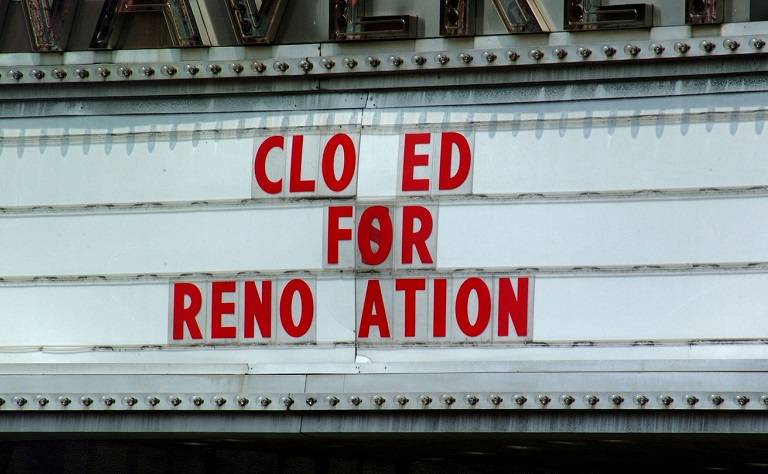'Marketcraft': How Governments Can Build and Renovate Market Institutions
15 March 2018
Julia Kreienkamp (GGI Research Assistant) on a GGI Keynote Lecture with Professor Steven K. Vogel.

Markets are institutions. They are firmly embedded in particular laws, regulations, norms and practices. This might not sound like a revolutionary statement but, as Professor Steven K. Vogel (UC Berkeley) argued at a recent GGI keynote lecture, its ramifications are rarely fully appreciated. In fact, most political and business leaders fail to escape simplified state vs. market dichotomies, with significant policy implications.
If markets are institutions they require governance. Again, this is not a particularly controversial argument. After all, it is well established that 'free markets' do not always result in efficient outcomes and that a minimal degree of regulation is necessary to address market failures arising from information asymmetry, imperfect competition, negative externalities or public goods. However, Vogel demonstrated that, beyond such corrective state interventions, markets actually need governance to function in the first place. In other words: there is no such thing as a 'free market' - markets are always crafted.
Overcoming False Dichotomies
What are the implications? According to Vogel, false dichotomies - state vs. market, regulation vs. competition, constraint vs. freedom - continue to be at the very heart of contemporary policy discussions. They fundamentally skew our analysis, obscuring the potential of what Vogel called 'marketcraft': our ability to build, reform, govern and improve markets.
This is not to downplay the importance of competition. On the contrary, what Vogel suggested, is that enhancing competition usually requires more, not less, regulation. As an example, Vogel pointed to British telecom reform in the 1980s, which involved aggressive promotion of competition by regulators in an effort to challenge the dominant position of the incumbent service providers. Importantly, this was not a one-off effort to 'free' the market - 'reregulation' of the (increasingly complex) telecommunications sector has turned out to be a continuous necessity to sustain competition.
As Vogel argued, we are slowly moving towards a new scholarly consensus, from 'market-liberalism' to 'market-institutionalism', with the latter viewing market reform as a constructive (building institutions) rather than a destructive (removing regulation) enterprise. The "Washington consensus", which prescribed market liberalisation, privatisation, and deregulation to developing countries, has now been declared dead by political and economic leaders. Similarly, prominent economists, including Nobel laureate Joseph Stiglitz, have acknowledged that 'shock therapy' was a flawed approach to economic reform in post-Communist countries.
Yet, in the industrialised world, the debate is still very much centred on neoliberal reform and the need to remove 'excess regulation'. Vogel suggested that this may be because industrialised countries already have quite advanced market institutions, which makes it easy to underappreciate their importance. However, he stressed, industrialised countries need institution-building just as much as developing countries in order to create more developed markets.
Marketcraft Success and Failure
If policy makers do not fully understand and appreciate the institutional nature of markets, things can go horribly wrong. The 2008 financial crisis is maybe the most prominent example of 'marketcraft failure' in recent history. The causes of the crisis are manifold and complex but, as Vogel argued, a core problem was that authorities put too much faith in the ability of financial market players to self-regulate, leaving them with little constraints to engage in risky behaviour.
If done properly, however, marketcraft can be a powerful tool. The information revolution, Vogel pointed out, was very much driven by entrepreneurial state behaviour. The US government played a key role, e.g. by funding research, making high-risk investments in innovative start-ups, and using anti-trust policies to prevent monopolisation of the information technology sector.
The key lesson for policy makers is that marketcraft, just as statecraft, is a fundamental government function. It provides a comprehensive tool box that goes far beyond 'taking things out of the market' or 'redistributing market outcomes'. And it is bound to become even more important in the future as many of today's most prominent policy issues - intellectual property protection, financial regulation, governing the digital economy - require substantial marketcraft interventions.
Focusing on Agency: We Can Craft Better Markets
Vogel compellingly showed how much language influences, and indeed distorts, our understanding of markets. The continued use of false dichotomies implies that there is a need to choose between the 'state' and the 'market', when really the question we should ask is: what type of relationship between state and market do we want? Importantly, as Vogel pointed out, there is also something demoralising about the rhetoric of 'free' and 'self-regulating' markets - it undermines the agency we have to shape and improve markets.
An important issue that was less explicitly addressed in Vogel's presentation is how the 'free market' paradigm is connected to power structures. Whom does this rhetoric serve? Markets are neither 'natural' nor 'neutral' and, as Vogel suggested, an appreciation of marketcraft can refocus our attention on how wealth is predistributed. In other words: Who is dealing the cards in the first place? The idea that we can use marketcraft to change the rules of the game is empowering but we can also expect those efforts to be met with substantial resistance.
Nevertheless, the key message of Vogel's talk was encouraging, providing lessons for both liberals and market progressives and countering the prominent narrative that there is an inevitable loss of state agency in the face of powerful global economic forces. As Vogel concluded: "We can craft better markets - and we should."
This talk was based on Steven K. Vogel's new book "Marketcraft: How Governments Make Markets Work" (Oxford University Press).
 Close
Close


